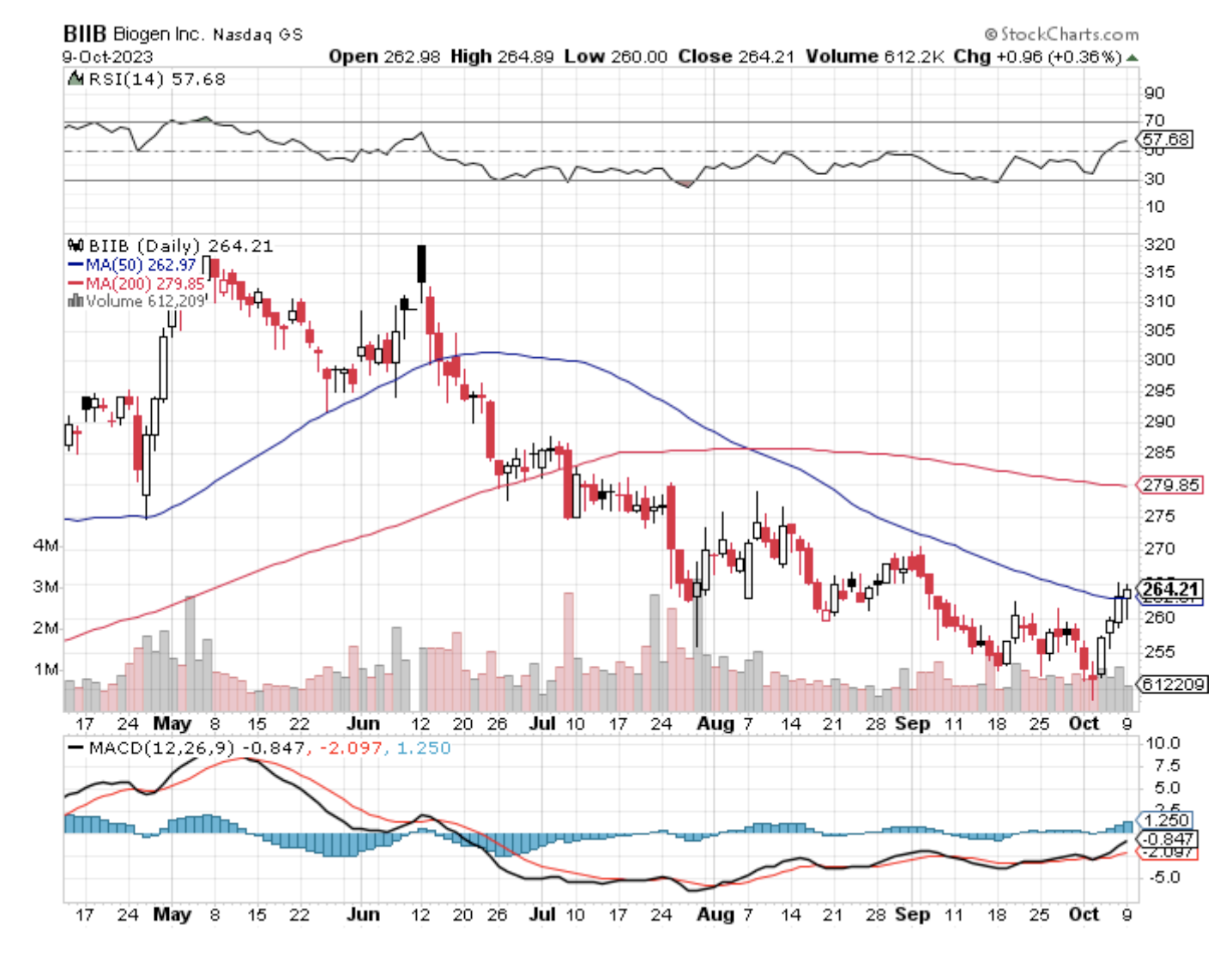From Memory Lapses To Market Leaps
In the intricate maze of Alzheimer's disease (AD) research, many pharmaceutical pioneers have found themselves at dead ends. Over the past decades, the quest for groundbreaking AD treatments has seen numerous experimental drugs falter. Yet, against this backdrop, Biogen (BIIB) stands out, having secured approvals for two AD drugs within a span of just a few years.
Given this remarkable achievement, one might expect Biogen's shares to be soaring. Surprisingly, the company's stock performance has been underwhelming.
Biogen's first AD therapy, Aduhelm, received approval in mid-2021. Yet, its introduction to the market was not without challenges. The approval of Aduhelm was mired in controversy due to inconclusive data regarding its effectiveness, leading to hesitancy among many physicians. This raised eyebrows among investors, questioning the drug's potential return on investment.
However, the real game-changer lies in Biogen's second AD drug, Leqembi, which entered the market this year. Developed in partnership with Japan-based Eisai (ESAIY), the two companies will equally share the profits and losses.
For investors, this partnership signifies a shared risk and potential for significant returns. Analysts have varying estimates regarding Leqembi's sales potential, with some projecting revenues of $3 billion by 2028. Such projections can translate to substantial earnings per share, making it a focal point for stock market enthusiasts.
Forecasts suggest that the Alzheimer’s disease (AD) sector will witness a significant expansion, with an anticipated compound annual growth rate of 20.0%, escalating from $2.2 billion in 2020 to a staggering $13.7 billion by 2030 in the primary eight markets, namely, eight major markets the United States, France, Germany, Italy, Spain, the United Kingdom, Japan, and urban China.
Considering the cautious approach after the Aduhelm situation, the market might be hesitant about making bold predictions for Leqembi. However, from an investment standpoint, Leqembi's financial trajectory appears promising. With a set annual list price and a growing patient base, the drug's revenue stream is poised for growth. For investors, this means a potential uptick in stock value and dividends in the coming years.
Diving deeper into Biogen's portfolio, the company's pipeline includes specific assets like BIIB080, an antisense oligonucleotide therapy targeting tau, a protein buildup in Alzheimer's patients' brains. There's also BIIB121 for Parkinson's Disease and BIIB124 for Essential Tremor. These assets, if approved, could open up new revenue streams, making Biogen's stock even more attractive.
Beyond its neuro portfolio, Biogen is diversifying its offerings. In August, the U.S. Food and Drug Administration (FDA) approved Zurzuvae, a medicine developed with Sage Therapeutics (SAGE) for postpartum depression (PPD). However, the FDA declined its use for major depressive disorder (MDD), a much larger market. Needless to say, this decision impacts the company’s potential revenue.
Further solidifying its position in the biotech market, Biogen is in the process of acquiring Reata Pharmaceuticals for $7.3 billion.
This acquisition brings Skyclarys, a treatment for Friedreich's ataxia, under Biogen's umbrella. Reports suggest that the market for drugs treating Friedreich's ataxia could surpass $2 billion annually by 2030.
So, what's the bottom line?
Biogen is proactively addressing its challenges, diversifying its portfolio, and showing potential for growth. While there are uncertainties, the company's strategic moves in the biotech space make it a contender for portfolio inclusion. For those with a keen eye on biotech stocks, the company offers both risks and rewards. Its recent approvals and acquisitions signal potential growth, but as with all investments, due diligence is crucial.
In the ever-evolving world of biotech investments, Biogen evidently stands as a company with potential. Its endeavors in Alzheimer's treatments, strategic partnerships, and acquisitions position it as a stock to watch. While challenges remain, the company's trajectory suggests a promising future, making it a consideration for investors seeking growth in the biotech sector. I suggest you buy the dip.

